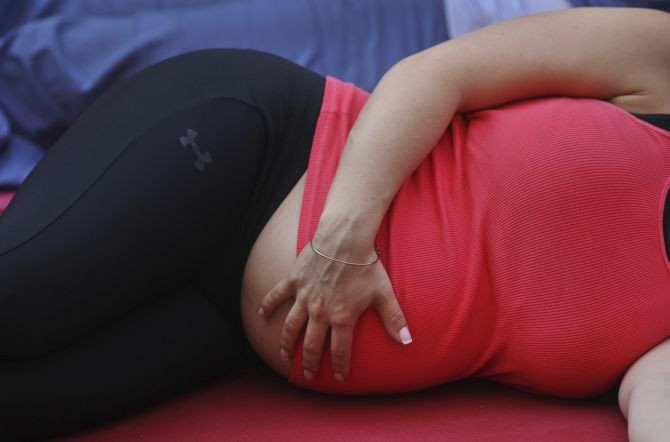Antidepressants During Pregnancy Not Linked to Stillbirth: Study

A new study on 1.6 million births in Nordic countries has found that antidepressants during pregnancy don't increase risk of stillbirth or neonatal death. Women taking these medications do have higher rates of stillbirth, but this increase is more likely to be associated with underlying psychiatric problem than by the medication.
"Depression during pregnancy is common with prevalences ranging between 7 percent and 19 percent in economically developed countries. Maternal depression is associated with poorer pregnancy outcomes, including increased risk of preterm delivery, which in turn may cause neonatal morbidity and mortality," according to the study report.
Researchers from Karolinska Institutet, Stockholm, Sweden, conducted the study to determine if women taking anti-depressants like selective serotonin reuptake inhibitor (SSRI) during pregnancy put their children under risk of stillbirth or other complications.
"Use of selective serotonin reuptake inhibitors during pregnancy has been associated with congenital anomalies, neonatal withdrawal syndrome, and persistent pulmonary hypertension of the newborn. However, the risk of stillbirth and infant mortality when accounting for previous maternal psychiatric disease remains unknown," the authors wrote.
The study was based on medical records of more than 1.6 million births from Denmark, Finland, Iceland, Norway, and Sweden during different periods between 1996 and 2007. Researchers obtained the information about use of anti-depressants from prescription registries while the pregnancy outcomes and related complications were obtained from patient and medical birth registries. In the study group, nearly 30,000 women were reported to be on a prescription of SSRI.
Researchers reported that they didn't find any association between use of SSRI and risk of stillbirth, neonatal death, or post-neonatal death. They added that the incidence of stillbirth in women who were taking these anti-depressants was actually associated with mental problems of the mother or other factors like age of the mother and her exposure to cigarette smoke.
"However, decisions about use of SSRIs during pregnancy must take into account other perinatal outcomes and the risks associated with maternal mental illness," the researchers concluded.
The study is published in the Journal of the American Medical Association.
Published by Medicaldaily.com



























